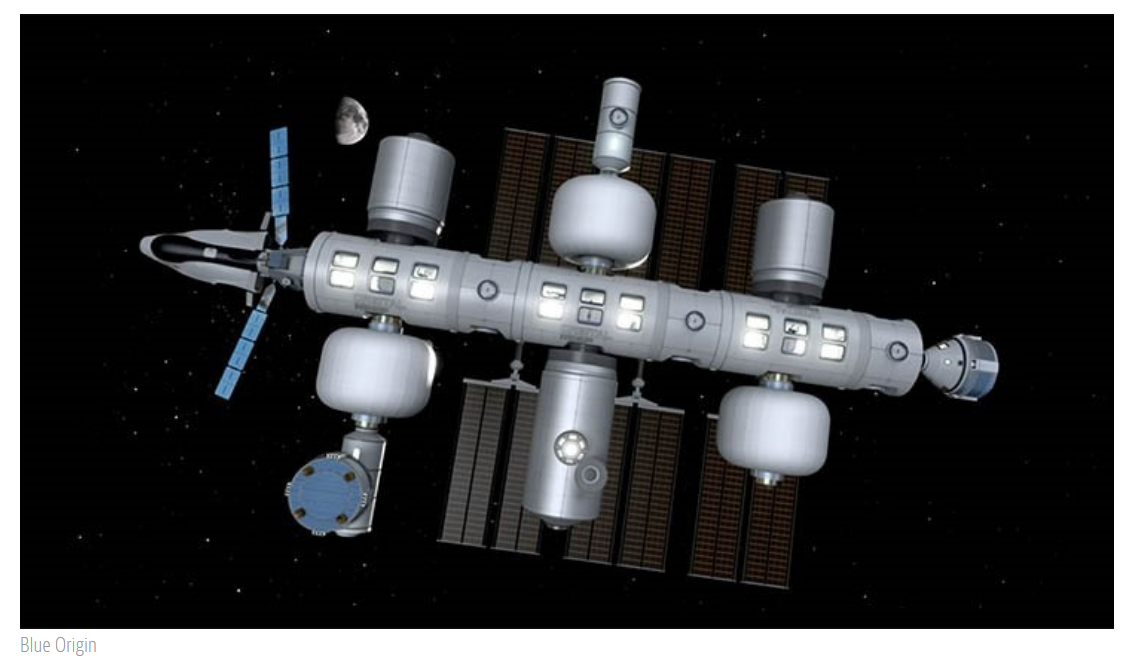Welcome to Sino Bearings web
24x7 HOTLINE:+86-28-81454188

 NEWS
NEWS
Blue Origin and Sierra Space have announced plans for Orbital Reef, a commercially developed, owned, and operated space station to be built in low Earth orbit. They hope the station will open the next chapter of human space exploration and development by facilitating the growth of a vibrant ecosystem and business model for the future. Orbital Reef is backed by space industry leaders and teammates including Boeing, Redwire Space, Genesis Engineering Solutions, and Arizona State University.
Orbital Reef will offer research, industrial, international, and commercial customers the cost competitive end-to-end services they need including space transportation and logistics, space habitation, equipment accommodation, and operations including onboard crew. The station will start operating in the second half of this decade.
Orbital Reef will be operated as a “mixed use business park” in space. Shared infrastructure supports the proprietary needs of diverse tenants and visitors. It features a human-centered space architecture with services and amenities that are practical and safe. Orbital Reef will provide the essential infrastructure needed to scale economic activity and open new markets in space.
Reusable space transportation and smart design, accompanied by advanced automation and logistics, are expected to minimize cost and complexity for traditional space operators and new arrivals, allowing the widest range of users to pursue their goals. The open system architecture allows a customer or nation to link up and scale to support demand. Module berths, vehicle ports, utilities, and amenities all increase as the market grows.
The Orbital Reef business model is designed to support a diverse portfolio of uses. The team has services and systems to meet the needs of emergent customers, including researchers, manufacturers, and visitors. Orbital Reef offers standard interfaces at all levels – locker, rack, and module. Seasoned space agencies, high-tech consortia, sovereign nations without space programs, media and travel companies, funded entrepreneurs and sponsored inventors, and future-minded investors are all to have a place on Orbital Reef.
The Orbital Reef team brings proven capabilities and new visions to provide key elements and services, including experience from building and operating the International Space Station:
• Blue Origin – Utility systems, large-diameter core modules, and reusable heavy-lift New Glenn launch system.
• Sierra Space - Large Integrated Flexible Environment (LIFE) module, node module, and runway-landing Dream Chaser spaceplane for crew and cargo transportation, capable of landing on runways worldwide.
• Boeing – Science module, station operations, maintenance engineering, and Starliner crew spacecraft.
• Redwire Space – Microgravity research, development, and manufacturing; payload operations and deployable structures.
• Genesis Engineering Solutions – Single Person Spacecraft for routine operations and tourist excursions.
• Arizona State University – Leads a global consortium of universities providing research advisory services and public outreach.
Arizona State University (ASU) leads a global consortium of universities, the Orbital Reef University Advisory Council. Comprising more than a dozen leading academic institutions with expertise in space and microgravity research, the University Research Advisory Council will focus academic community needs, stimulate research, advise novice researchers, evolve standards of conduct, and lead STEM outreach.
University Advisory Council members include:
• Arizona State University
• Colorado School of Mines
• International Space University
• Oxford University
• Purdue University
• Southwest Research Institute
• Stanford University
• University of Central Florida
• University of Colorado at Boulder
• University of Florida
• University of Michigan
• University of Texas at El Paso
• University of Texas Medical Branch
• Vanderbilt University